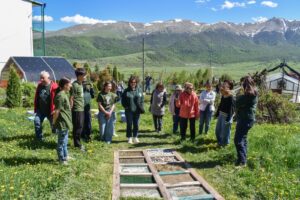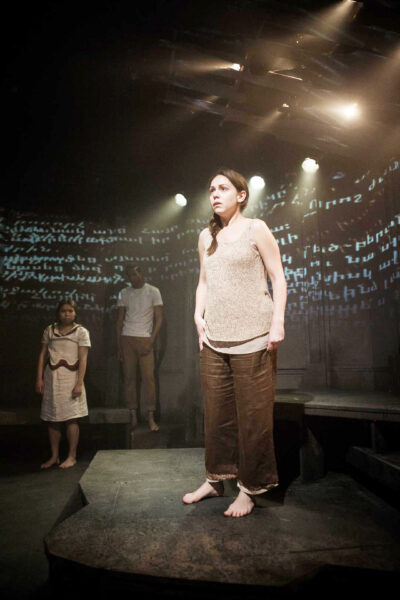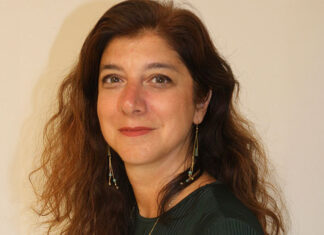LONDON — Neil McPherson (born in London, 1969) is British artistic director and playwright. Between 1991 and 1994, he trained as an actor at the Central School of Speech and Drama and was a member of the National Youth Theatre for eight years. McPherson was artistic director of the New End Theatre, Hampstead, from 1996 to 1997, and has been the artistic director of the Finborough Theatre, London, since January 1999. He has commissioned many productions for the Finborough Theatre including most of the theatre’s acclaimed series of rediscoveries (including “Accolade,” “Mixed Marriage” and “Cornelius”).
His award-winning first play, “I Wish to Die Singing – Voices From The Armenian Genocide,” was presented at the Finborough Theatre in 2015, and an excerpt was also performed concurrently in Los Angeles. His second play, “It Is Easy To Be Dead,” sold out at the Finborough Theatre, and subsequently transferred to the West End where it was nominated for an Olivier Award, and toured Scotland. The scripts of both plays are published by Oberon Books.
McPherson received Best Artistic Director – Fringe Report Awards (2009), The Writers Guild Award for The Encouragement of New Writing (2010), Best Artistic Director – Off West End Awards (2011), Off West End Awards (2012), the Critics’ Circle Special Award for Services to Theatre (2019).
Neil, we became friends on Facebook after your award-winning first play, “I Wish to Die Singing – Voices From The Armenian Genocide,” was presented at the Finborough Theatre in 2015. We, Armenians, are sensitive to those non-Armenians, who share our pain and concerns. And many people would have a logical question: why did you pick this topic?
As far as I remember, the first time I ever heard about the Genocide was when I was 18 and read Tim Cross’ The Lost Voices of World War One, which included the work of three leading Armenian poets, all deported from Constantinople on April 24, 1915.
Seventeen years later, as artistic director at the Finborough Theatre in London, I was programming the theatre for the 2005 season. As usual, I researched the anniversaries that fell in that year as they can sometimes be a useful marketing hook for a production. When I learned that 2005 was the 90th anniversary of the Armenian Genocide, I decided to search for a play that we could produce to commemorate it. All of the plays I could find were by Armenian-Americans. Most were very short, and focused on the experience of the Armenian diaspora in the United States. They all assumed that their audiences already possessed a good working knowledge of the Genocide.









